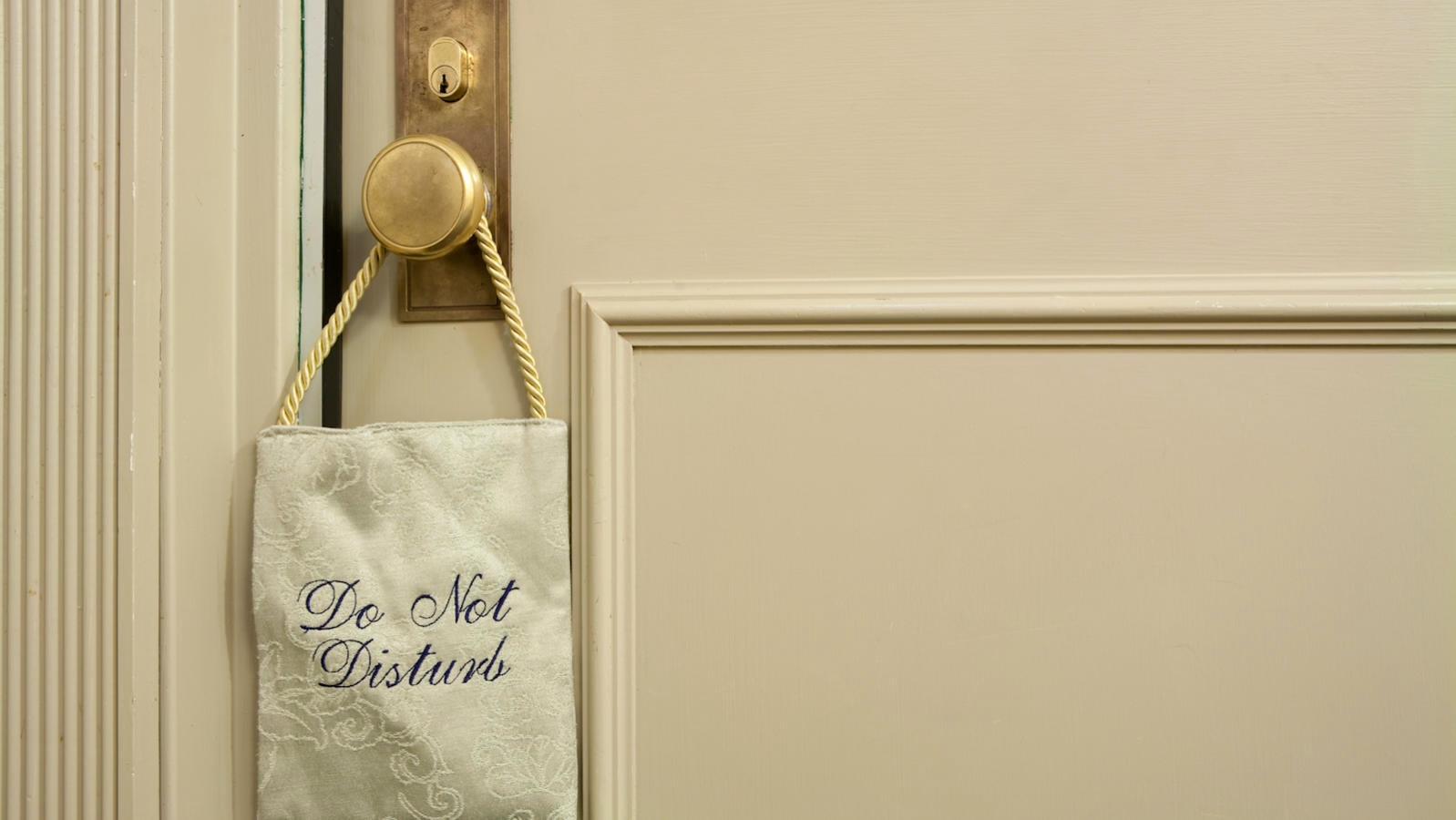Judaism is generally very positive about sex, regarding it as a divine gift and a holy obligation — both for the purposes of procreation and for pleasure and intimacy. The Talmud specifies not merely that a husband is required to be intimate with his wife, but sources also indicate that he is obliged to sexually satisfy her. So vital is sexual activity considered to Judaism that celibacy, even for those so devoted to spiritual life that they feel they don’t have energy left for marriage and children, is frowned upon.
Nonetheless, Judaism doesn’t exactly take an anything goes approach to sex. Instead, sexual activity is highly circumscribed in Jewish tradition, as the rabbis of the Talmud sought to use the human libido as a tool for increasing the population and strengthening marriage. Traditional Jewish law not only prohibits many types of sexual relationships, but it also dictates specific parameters even for permitted ones. And while Judaism is broadly permissive when it comes to sex between married adults, the same is not true for sexual activity outside of a committed relationship.
Does Judaism allow extramarital sex?
Adultery — traditionally defined as sexual intercourse between a married woman and a man who is not her husband — is forbidden in the seventh of the Ten Commandments and is among the most serious infractions in Judaism. But there is no universal prohibition on men having sexual relations out of wedlock, an allowance that is believed to stem at least in part from concerns about paternity — a women with multiple partners raises doubts about a child’s parentage. Indeed several of the key figures in the Bible engaged in sexual relationships and fathered children with women who were not their wives, including the patriarchs Abraham and Jacob. The Torah and later rabbinic writings also recognize the category of concubine (pilegesh in Hebrew). However, the practice of Jewish men having multiple sexual partners, whether multiple wives or concubines, has not been common for centuries.
What about premarital sex?
Traditionally, premarital sex has been discouraged if not taboo, and in the contemporary Orthodox world it is strictly forbidden. Many ultra-Orthodox communities are stringent about separating males and females in large part to reduce the likelihood of romantic encounters between the unmarried. Though there is no such gender separation in more liberal Jewish communities, even contemporary Reform and Conservative rabbis have upheld Judaism’s traditional preference that sex be reserved for marriage. A 1979 Reform movement responsum declared “premarital and extramarital chastity to be our ideal.” Even in 2001, when a committee of Reform rabbis published a report on sexual ethics that dropped references to marriage as the sole appropriate context for sexual activity, the movement continued to urge fidelity and exclusivity in sexual relations. The committee issued a separate statement on adultery that described extramarital affairs — whether conducted in secret or with a spouse’s consent — as sinful and forbidden.
The Conservative movement has taken a similar line. While officially maintaining that marriage is the only appropriate context for sex and firmly rejecting adultery, incest and general promiscuity, the movement has acknowledged that “a measure of morality” can be found in non-marital sexual relationships provided they comport with Jewish sexual values, including mutual respect, honesty, health and monogamy.
Both the Reform and Conservative movements have affirmed that their attitude toward sexual ethics applies equally to heterosexual and homosexual relationships.
What is the Jewish view on masturbation?
Traditionally, masturbation is strictly prohibited for men. The source of this prohibition is sometimes attributed to the biblical figure Onan who, charged with propagating the family line by fathering children with his brother’s widow Tamar, instead withdrew from her and ejaculated on the ground — a crime for which God took his life. Many commentators subsequently understood the prohibition on masturbation as a prohibition on the spilling (or wasting) of sperm. The Shulchan Aruch rules that it is forbidden to spill seed needlessly, calling it a sin more severe than any other in the Torah and tantamount to murder. The Talmud referred to male masturbation as adultery with one’s hand.
Some rabbinic authorities consider Onan’s sin to have been disobedience, rather than wasted sperm, and see the source of the masturbation ban in concerns about ritual purity. Maimonides, who was a physician as well as a rabbi, wrote that excessive seminal discharge causes bodily decay and diminished vitality — a common belief in the Middle Ages that is not generally accepted by modern Western medicine.
In some Orthodox communities, the prohibition on male masturbation is taken so seriously that various other acts are also barred for fear they might lead to arousal and thus to wasting seed — including touching one’s own penis, another act the Talmud banned (even during urination)
The liberal denominations have taken a somewhat more accepting approach. In a 1979 paper that addressed the question directly, Reform Rabbi Walter Jacob wrote that masturbation isn’t sinful or harmful, though it should still be discouraged. Elliot Dorff, a leading Conservative rabbi who has written extensively on Jewish sexual ethics, has suggested that given the tendency among Jews in the West to delay marriage, it is unreasonable to expect complete abstention from all sexual pleasure until one’s wedding night. Given the choice between premarital sex and masturbation, Dorff wrote, masturbation is morally preferable. . In part to avoid such choices, some Orthodox communities strongly encourage young people to marry by their early 20s, if not earlier.
Female masturbation is less problematic in Jewish tradition, as it doesn’t raise concerns about spilled seed. The issue is not directly addressed in ancient sources. Indeed, some have suggested that the rabbis of the Talmud, all of them men, couldn’t even conceive of female masturbation as a form of sex. While, some authorities have inferred a prohibition based on sources that are sometimes understood as barring lustful thoughts, , other contemporary rabbis see no problem with women masturbating. Rabbi Moshe Feinstein, a leading 20th century Orthodox authority, dismissed multiple grounds for objection to female masturbation, including that sexual thoughts might lead to actual transgressions.
Is pornography acceptable?
Traditional Jewish law is firmly opposed to pornography. The Shulchan Aruch prohibited even looking at a woman’s finger or her clothes lest it lead to impure thoughts and actions. Various biblical sources are also routinely invoked as a basis for banning porn. Among them, the verse (Numbers 15:39) that establishes tzitzit fringes as a bulwark against following the lustful urges of the eyes. Moreover, Jewish tradition stresses the importance of modesty and privacy in the conduct of sexual relations, and early rabbinic literature voices considerable fear about the impact of impure sexual thoughts. Rabbi Danya Ruttenberg, a Conservative rabbi who has written extensively about Judaism and sexuality, raises another concern about consumer ethics and pornography, given that much sexually explicit material is produced in ways that are exploitative of the performers.
Though ancient rabbinic sources were fairly permissive with respect to sexual activity between husband and wife, some rabbis nevertheless consider the viewing of pornography as beyond the pale even when married couples use it as foreplay or as a way to improve their sex lives. Shmuley Boteach, a rabbi and author whose books include Kosher Sex, Kosher Lust and Kosher Adultery, has approved fellatio and sex toys, but draws the line at pornography. “They may be making love while watching the film, but in spirit and in mind they might as well be with the people in the video,” Kosher Sex says of couples that watch pornography together.
Rabbi Jonathan Crane, writing in the Reform movement’s 2014 volume on sexuality, The Sacred Encounter, takes a different view. “It would seem that the tonal thrust of the textual tradition favors permitting, if not encouraging, Jews to produce and consume some forms of erotic expressions for the purpose of invigorating marital relations, with perhaps more freedom in the verbal than visual arena,” he writes.
In recent years, the easy availability of online pornography has prompted serious alarm, particularly in the Orthodox world. Orthodox rabbis have issued stringent edicts about internet use, and a number of organizations have sprung up to help those battling porn addiction. GuardYourEyes, an Orthodox website endorsed by a number of prominent Orthodox (mostly ultra-Orthodox) rabbis, offers a wide range of tools for those battling addiction, including support groups, daily emails and filtering software. “I doubt that at any time in our history has there been as grave a threat to the morality of our people and to the stability of the Jewish family as the plague of addiction to internet pornography,” Abraham Twerski, a leading Orthodox rabbi and respected psychiatrist specializing in addiction, has written.
Is sexting permitted?
Sexting, the sending of sexually suggestive words or images by text message, has become a common practice among teenagers and has raised alarms among educators, religious and secular alike. However, the simple act of using words to sexually entice isn’t a forbidden act. Indeed, a famous Talmudic story suggests that at least one ancient Jewish rabbi talked erotically with his wife in bed prior to intercourse. In his podcast The Joy of Text, Orthodox Rabbi Dov Linzer suggests that sexting one’s spouse could actually be a good way to build “some sense of anticipation and excitement even before the couple moves to the bedroom.”
One problem with sexting is that it can also be a means of carrying on non-physical sexual relationships outside of marriage, as evidenced by the notorious case of former Congressman Anthony Weiner. Experts have also raised concerns that sexting among teens leads to bullying and risky sexual behaviors, though some have challenged these assertions. There have also been cases in which sexted photos of underage girls have wound up online. Sexting that violates someone’s privacy or leads to bullying or risky behaviors would clearly run afoul of Jewish law and ethics.
Does Judaism allow oral sex?
Though some rabbis in the Talmud were highly restrictive about which sexual activities married couples could engage in, the prevailing view was that a man may do with his wife as he wishes provided he has her consent. This ruling is explicitly codified by Maimonides and by the 16th-century authority Moses Isserles (known as the Rema), whose commentary on the Shulchan Aruch is considered authoritative by Ashkenazi Jews. While some rabbinic authorities consider fellatio to run afoul of the prohibition on spilling seed, this is not universally accepted even within Orthodox circles. The Rema cites a leniency that even “unnatural” sex — a Talmudic term usually understood as referring to anal sex — is permitted even if it leads to ejaculation. From this specific allowance for non-procreative ejaculation, some extrapolate that any sexual act undertaken in the context of a permitted sexual relationship is acceptable even if it results in sperm not being used for reproductive purposes.
As with female masturbation, oral sex performed on a woman does not raise issues of spilled semen. Though some more stringent opinions consider the practice forbidden on various grounds — among them, a prohibition on staring at a woman’s genitals — both Maimonides and the Rema explicitly permit a man to kiss any limb of his wife’s body that he desires.

Help us keep Jewish knowledge accessible to millions of people around the world.
Your donation to My Jewish Learning fuels endless journeys of Jewish discovery. With your help, My Jewish Learning can continue to provide nonstop opportunities for learning, connection and growth.



